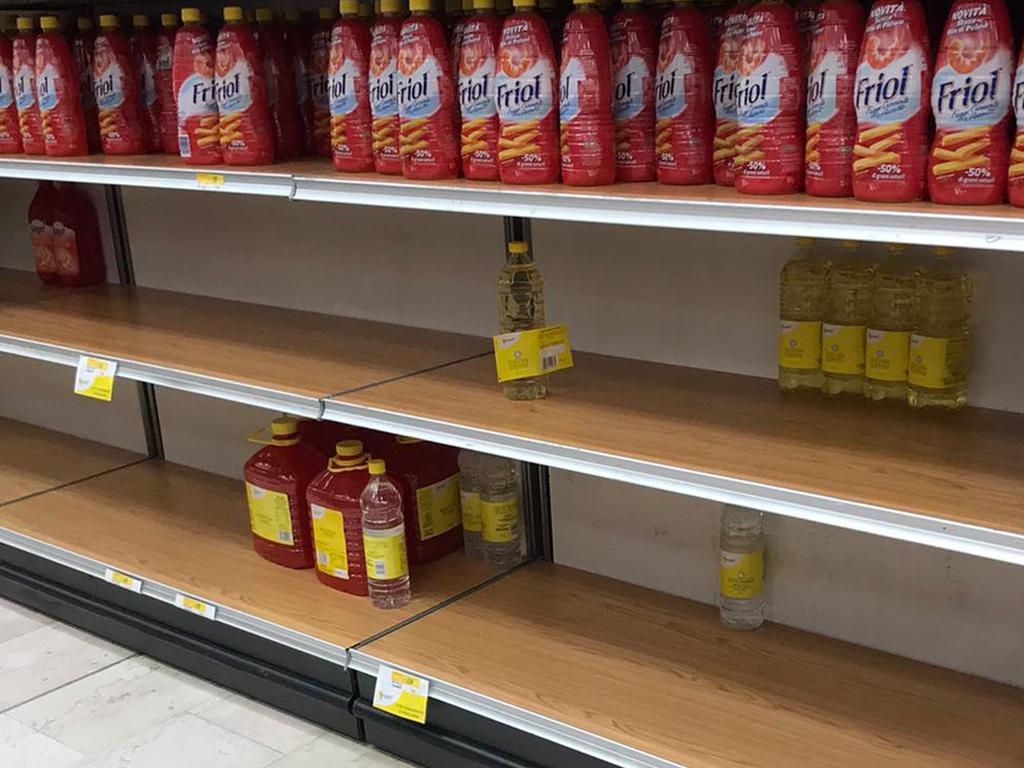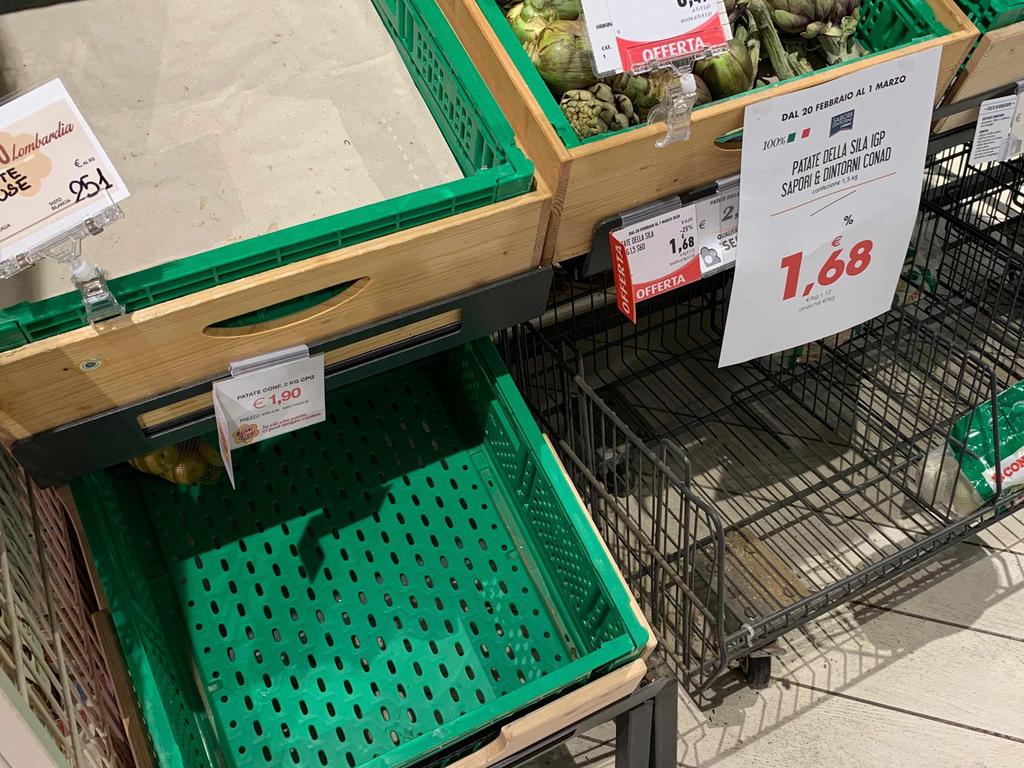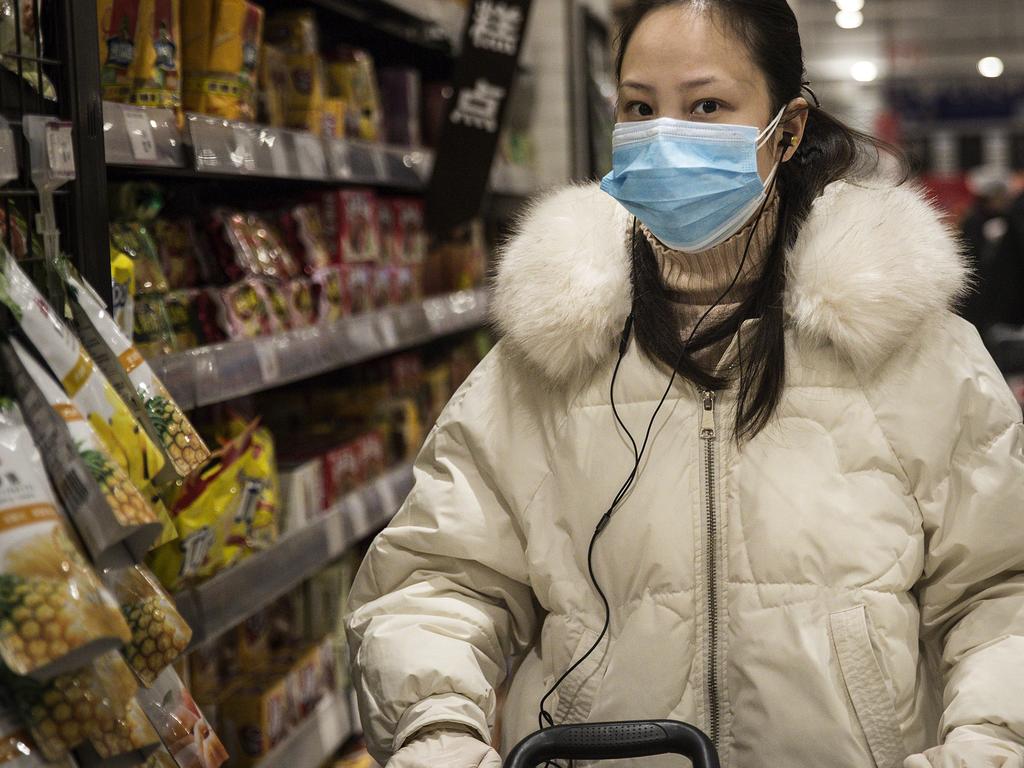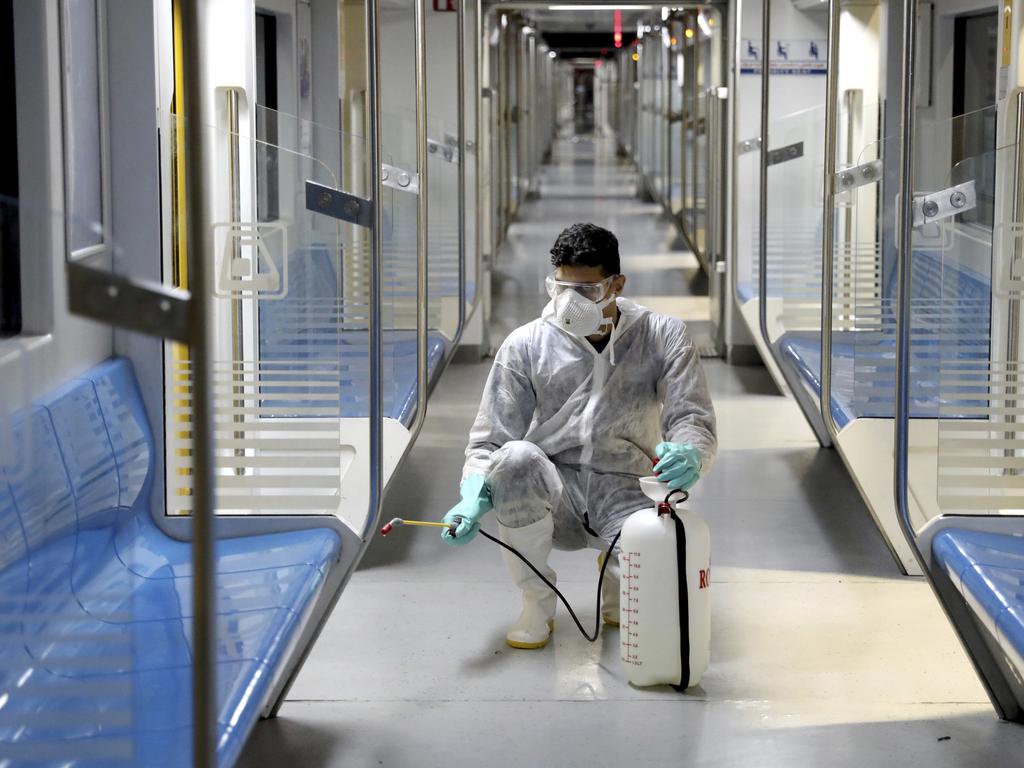‘It’s coming … it’s just how long it takes to come’
A virologist says Australians should be stocking up on toilet paper, prescription meds and pet food before coronavirus sweeps through the country.

A virologist at the forefront of coronavirus research has warned Australians to stock up on essentials to prepare for home quarantine and school and work closures when the new coronavirus sweeps through the country.
Associate Professor Ian Mackay from the University of Queensland said in his opinion a pandemic was inevitable and it was only a matter of time before SARS-CoV-2, the virus that causes the deadly COVID-19, ripped through the Australian population.
“The virus is too well entrenched in many countries around the world,” he told 3AW’s Neil Mitchell.
“It’s coming. It’s just how long it takes to come. China has slowed things down so we’ve got time to prepare — we owe them for that — but it will get here eventually.”
Prof Mackay, who helped develop coronavirus tests for use in Australia, said the government had failed to advise citizens on how to prepare for “what’s coming”.
“We’re talking about the community here and what they aren’t being given lots of information about, and that’s what to do so they feel like they are getting prepared,” he said.
“It’s better to be honest and authentic and talk to the community like we are members of the same community so that we all understand what’s coming and where we are now.”


As of Wednesday, the total number of confirmed COVID-19 cases had exceeded 80,500, with more than 2700 deaths.
While the vast majority of infections and fatalities remain concentrated in China, the virus has started to spread its tentacles across the globe, resulting in a spike of cases in South Korea, Japan and across the Middle East.
Australia still only has 22 cases but, according to Prof Mackay, that will almost certainly change.
DON’T STOCKPILE LIKE A DOOMSDAY PREPPER
When we start to see an increase in human to human transmission of SARS-CoV-2 in Australia, we may see big gatherings cancelled, school and work closures and home quarantines come into effect.
Efforts to contain the virus will likely have an impact on the supply chain of goods and services so it’s best to start stocking up on essentials to make life as comfortable as possible.
“Now is the time to buy a few extra things,” he said.
“Think about your pets, think about your parents and grandparents (and) how they’re going to go. Do they need medication? Should you talk to your doctor about getting a few extra prescriptions in the cupboard just in case?
“It's pretty much to say what happens if your schools get closed and you’re stuck at home with your kids for a while or if people say you can’t go to work, we need to keep people at home for a while to slow down the spread of the virus.
“Are you set up at home to have some stuff for a couple of weeks to keep going, to have stuff to eat (like) canned food, dried food. Do you have (home-based activities) to do? Have you got batteries?”
Prof Mackay said there was no need to stockpile like a prepper while the virus remained contained in Australia.



Panic buying has led to shortages in China — where around 780 million people are living under partial or full quarantine — and Italy, where authorities have blocked off entire towns and villages.
“There’s no point hoarding things or panic buying so that we empty the shelves,” Prof Mackay said.
“We don’t need to do that. It’s not panic preparing, it’s just thinking ahead to what happens if there are interruptions in our day to day life.
“It’s just thinking ahead, buying a few extra groceries each week stocking up on a few things like toilet paper just in case there are interruptions to supply — and that’s possible depending on the size and severity of the pandemic.”
A SARS-CoV-2 outbreak in Australia is likely to result in the temporary closure of schools and workplaces and cancellation of large gatherings, including sporting events.
“Interruptions to supply (are) possible depending on the size and severity of the pandemic,” Prof Mackay said.
“We also need to know we might see interruptions to services, we might see big gatherings close, we might not be able to go to that NRL game because authorities say let’s not go to it. “That sort of stuff might happen that’s different from what we normally see. So it can be scary but it doesn’t have to be if we talk about it now.”

IS IT SAFE TO GO TO MARDI GRAS THIS WEEKEND?
Prof Mackay said while the new coronavirus remained under control in Australia, the risk of catching it at a crowded event remained minimal.
“We don’t see the virus spreading in our country right now, we’ve contained all the cases we had, so gatherings happening right now, gatherings like the Mardi Gras or sporting events should go ahead,” he said.
“There’s really minimal risk. There’s never zero risk but there’s minimal risk.”
HOW DEADLY WILL SARS-CoV-2 BE IN AUSTRALIA?
Sustained transmission in Australia may result in anywhere from 25 per cent to 70 per cent of the population getting infected. So, a case fatality rate (CFR) of 2 to 3 per cent is high.
“To put it in context, the case fatality rate of the 1918 flu pandemic was 5 per cent, and the 2009 pandemic (was) 0.01 per cent,” Professor Raina MacIntyre, head of the Biosecurity Program at the Kirby Institute at the University of NSW, said.
“If 50 per cent of Australians became infected, that is 492,000 to 738,000 people dying, over three million people needing a hospital bed and over one million people needing an ICU bed.”
Prof MacIntyre said the bigger the epidemics become in other countries outside China, the greater the risk to Australia.
“We are close to a pandemic, but there is still hope the epidemics in Iran, Italy, South Korea, etc, can be controlled,” she said.
“Australia has done an excellent job of preventing sustained transmission in the country.
However, if epidemics grow in other countries, so will the risk.”




